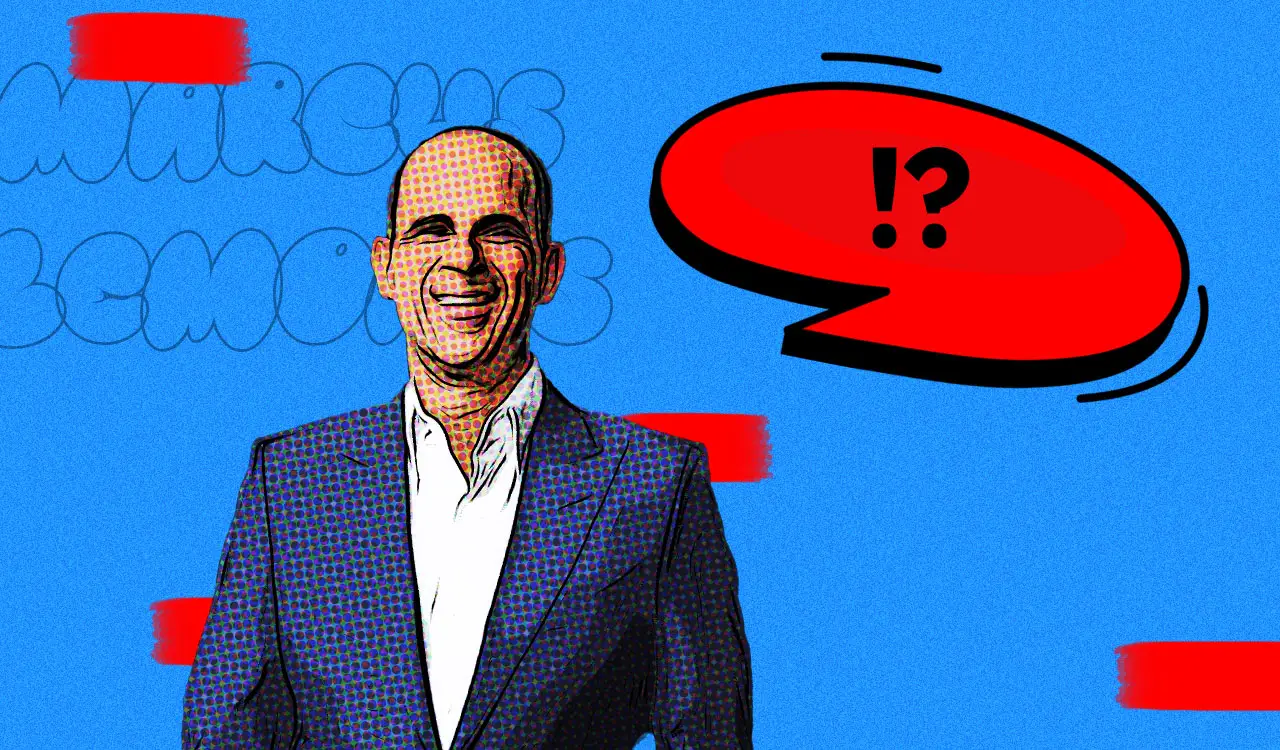Anytime a new CEO takes over a company there are usually polite – if often curt – words about the prior administration. Such niceties seemed to have escaped Marcus Lemonis who is now running the company called Beyond Inc. that was once Overstock and now owns the resurrected online-only Bed Bath & Beyond.
Lemonis, in his leading role on the TV series, “The Prophet,” has been no stranger to controversy with numerous participants accusing him of all sorts of bad things. Some have even led to lawsuits. Since taking over the leadership of Beyond Inc. he has been assertive in his comments and takes the lead in responding to questions often directed to others as he did during the housewares show presentation. He is very much into running things.
In referring to his predecessors in a keynote presentation at March’s Inspired Home Show for the home and housewares industry the executive chairman of the company (there’s no CEO yet so he is definitely running the show) Marcus Lemonis said he “pushed all the idiots out of the room.” And to make sure nobody thought this was a slip of the tongue, he added “I have no problem saying this.”
Lemonis, in his leading role on the TV series, “The Prophet,” has been no stranger to controversy with numerous participants accusing him of all sorts of bad things. Some have even led to lawsuits – which it seems Lemonis has been consistent in winning – but the comments have been harsh and heavy, nonetheless. Since taking over the leadership of Beyond Inc. he has been assertive in his comments and takes the lead in responding to questions often directed to others as he did during the housewares show presentation. He is very much into running things.
Beyond Beyond
Lemonis also runs the outdoor retailer Camping World and came to fame with his CNBC reality show “The Prophet” before an outside activist investor group brought him into Beyond. He has turned things pretty much upside down since his arrival. In just a few months, the upheaval has been substantial. “I’ve recalibrated everything in the company because the business needed a focus.”
- In addition to getting rid of former CEO Jonathan Johnson who had engineered the bargain basement-priced deal for Bed Bath & Beyond – about $21 million for the brand, intellectual properties and, most importantly, 20 million customer names and their contact info – other senior executives from the former Overstock management group were shown the door at company headquarters in Utah.
- He relaunched the Overstock.com business and website in late March, bringing back the brand that had been doing about $1.5 billion in annual sales (and consistently losing money) focused on furniture, home décor and decorative accessories. He called the original closing of the Overstock site a “death blow decision.”
- Also in March, he bought Zulily’s intellectual properties and some assets, gaining more customer names and an additional online brand that had sold a little bit of this and some of that. No definitive announcements have been made yet on its relaunch, but one can assume that’s the plan to revitalize it.
- He brought in a new group of managers, led by Chandra Holt as CEO of Bed Bath & Beyond and Dave Nielsen as CEO of Overstock. CFO Adrianne Lee took on additional responsibilities as chief financial and administrative officer. And Carlisha Robinson was just named chief customer officer.
Prophet-sizing
In his housewares show presentation, which also included comments from CEO Holt, Lemonis laid out his master plan for rebuilding the company, based on what he called a “four corners” strategy.” It involves multiple brands— Bed Bath & Beyond, Overstock, Zulily and assorted spin-offs (see below), an expansion into the home services sector and a possible tie-in with a third party to put Bed Bath & Beyond back into the physical store space. It wasn’t exactly clear what the fourth corner was, though we’re sure he knows.
Lemonis said he envisions “a gallery of brands” as he “builds a grid” of names to position the company spanning luxury through to off-price and flash sale sites, the latter through Zulily. As such, Beyond Inc. might more closely follow a model established by online home competitor Wayfair which has specialized brands and websites for individual sectors, like modern and luxury.
On the branding front, he talked about a whole series of sub-brands that would likely have their own websites or at least landing pages, including Baby & Beyond, Kids & Beyond, Backyard.com and College Living. There would also be one for the company’s private label brand Wamsutta, once one of the most prominent names in soft home.
There will also be a move into services related to the home, like mortgages and insurance, something he has mentioned previously but has not been realized.
Interestingly this strategy brings up reminders of a similar path taken by Sears Roebuck decades ago when it bought Allstate and the Caldwell Banker investment firm in an effort to provide the same kind of home-related services to its customers. The plan was eventually abandoned in one of the countless reinventions of what was at the time the largest retailing company in the country.
Let’s Get Physical
In answering a question from the audience at the show on a possible return to physical stores, Lemonis jumped in over Holt before she could respond, “We have no plans to open Bed Bath & Beyond stores,” but added that there could be a strategy to license the brand to third-party store operators,” citing a similar operating arrangement it is now setting up outside the U.S.
Lemonis and Holt both kept returning to the fact that all the company’s sites would be focusing on “high-quality” products. This seems to be a competitive positioning against online sites like Temu and Shein which are growing rapidly, especially in home. Yes, but. These Chinese twins have encountered quality concerns from disappointed customers. Lemonis even mentioned how Temu’s model often has been criticized for product quality.
He also talked generally about a new initiative to create “content” around the brands that could include “long-format” TV shows for streaming services like Netflix and cable networks like Bravo that could then be edited into smaller videos to be posted on its websites. A week after the show, Beyond announced it would be working with X, the social media site once known as Twitter, to do just that.
Marcus Lemonis Magic?
In a passing comment during his presentation, Lemonis said “We’re going to do $2 billion this year,” which would represent a substantial increase over the $1.56 billion it did last year. That’s a heady goal given the overall state of the home furnishings business and the broader consumer products retail sector which have struggled over the past year or so. Even his Camping World flagship showed a 10.6 percent decline in its most recent fiscal year with an 86 percent decline in net income.
Lemonis is clearly not bashful about making bold statements…both positive and negative. So, while one has to think current employees at Beyond Inc. may feel relieved they are not part of the “idiots’ he pushed out, they could have concerns about being next in line. The home furnishings industry desperately wants him to be successful in revitalizing the Bed Bath & Beyond business. At its peak not all that long ago, the company did more than $11 billion in annual sales. And even during its last full year in business, it had revenues of nearly $5 billion. When the prior management bought the brand last summer, they talked about adding several hundred million dollars of sales to the existing company, a far cry from those much larger numbers.
Marcus Lemonis is fully confident he can do better than “the idiots.” Much better. Let’s see how good a prophet he really is.




